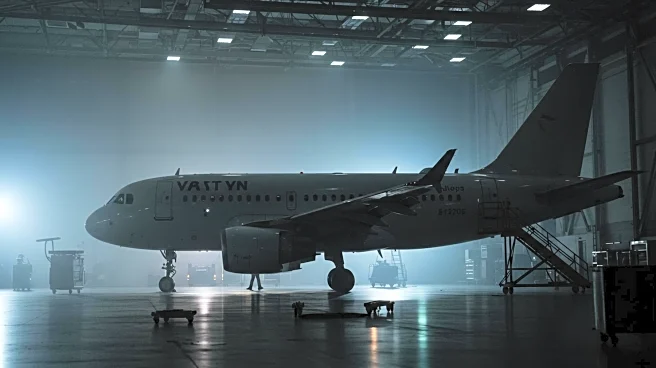What's Happening?
Air Canada has postponed the resumption of its services to August 18 after its cabin crew union, CUPE, defied a return-to-work order. The airline had suspended over 700 flights due to a strike that began on August 16. The federal government intervened on August 17, referring contract negotiations to arbitration and instructing cabin crew to resume duties. CUPE, however, has accused the government of infringing on workers' rights and has refused to comply with the directive. Air Canada claims the union's actions are illegal, resulting in the cancellation of approximately 240 flights scheduled for August 17. The airline plans to resume operations but anticipates a seven to ten-day period to stabilize its schedule due to aircraft being out of position.
Why It's Important?
The defiance of the return-to-work order by CUPE highlights ongoing labor tensions within the airline industry, which could have broader implications for labor relations and government intervention in Canada. The strike and subsequent flight cancellations affect thousands of passengers, potentially leading to financial losses for Air Canada and impacting its reputation. The situation underscores the challenges airlines face in balancing labor demands with operational needs, especially in a post-pandemic environment where travel demand is recovering. The outcome of the arbitration process could set precedents for future labor negotiations in the industry.
What's Next?
Air Canada will focus on stabilizing its operations over the next week, while the arbitration process addresses the terms of the collective agreement. The airline and CUPE will likely continue negotiations, with the government closely monitoring the situation. The resolution of this dispute could influence labor policies and practices within the airline industry. Passengers affected by the cancellations may seek compensation, adding pressure on Air Canada to resolve the issue swiftly.










